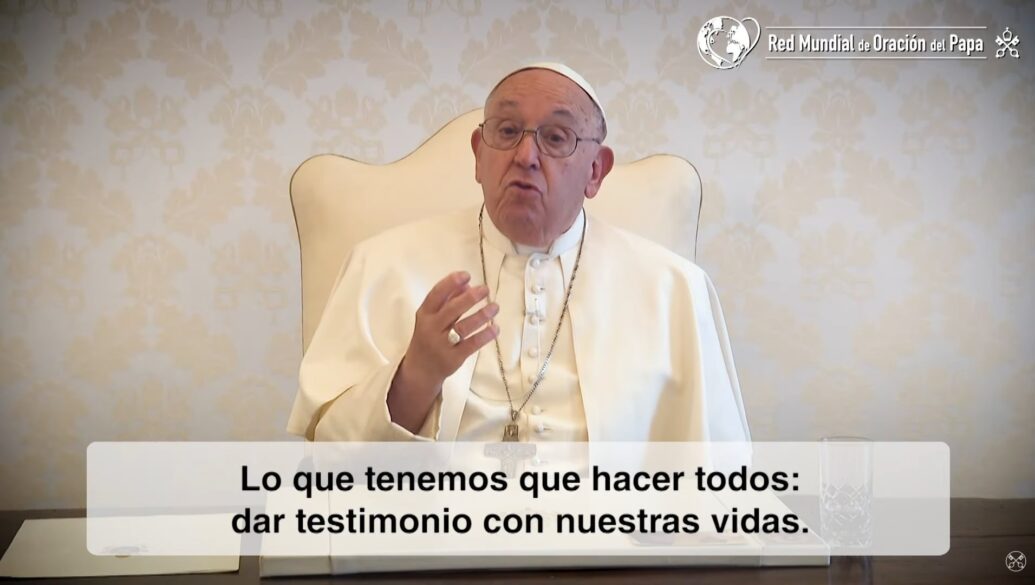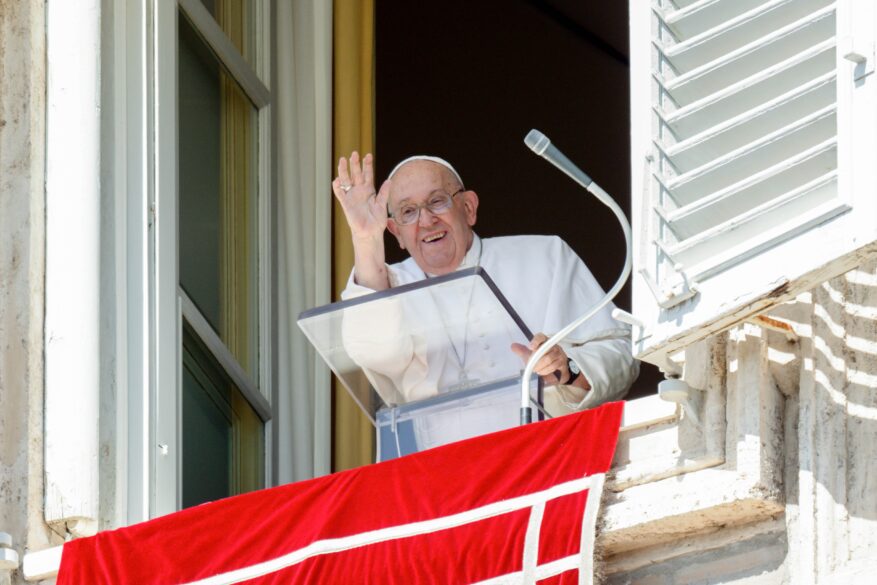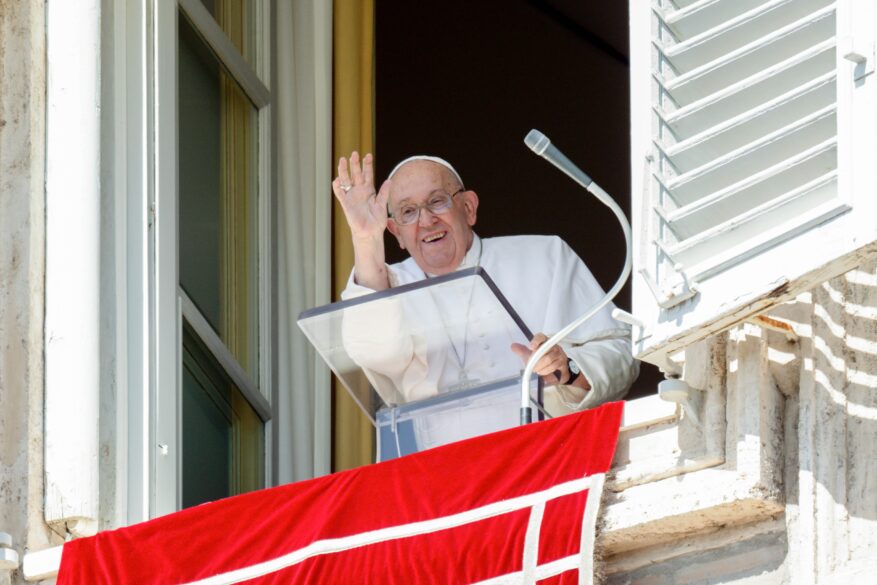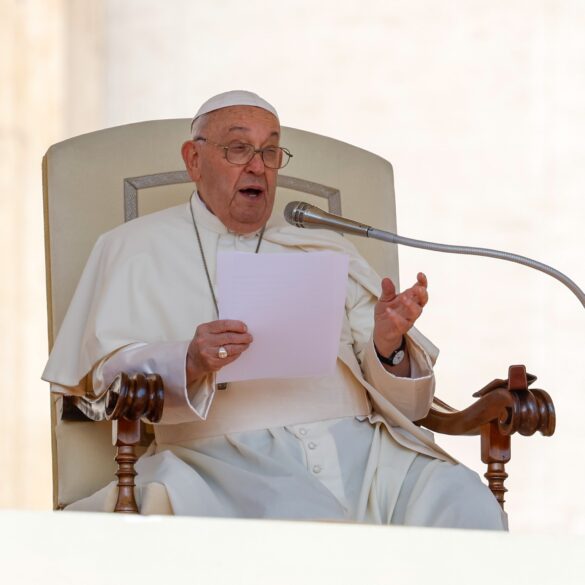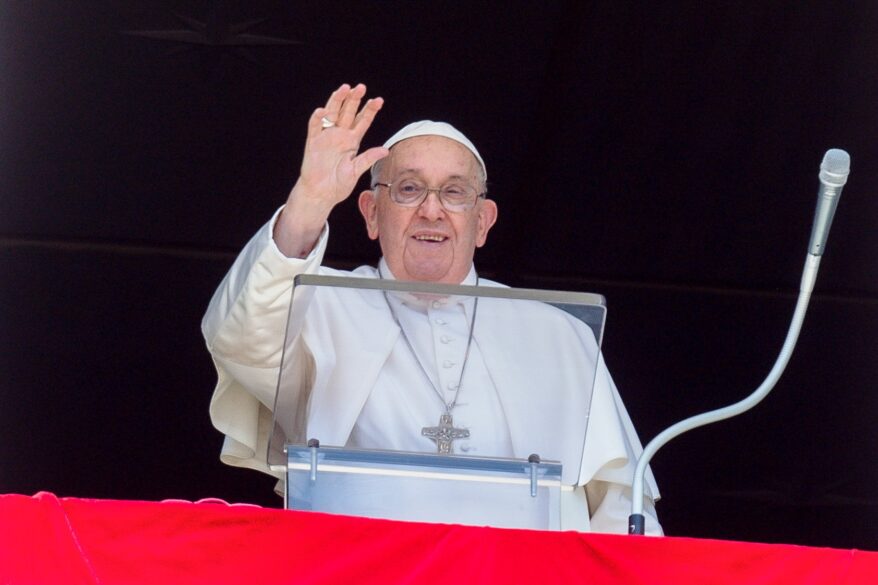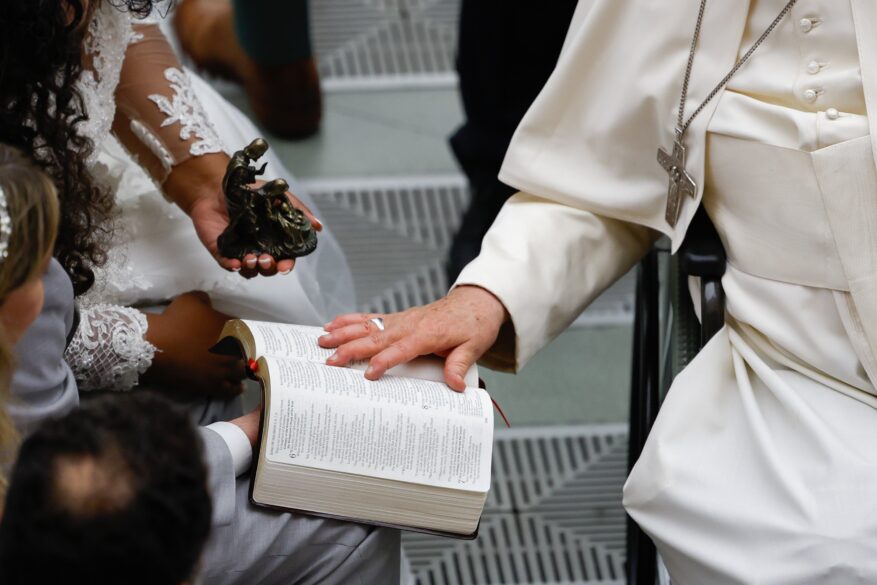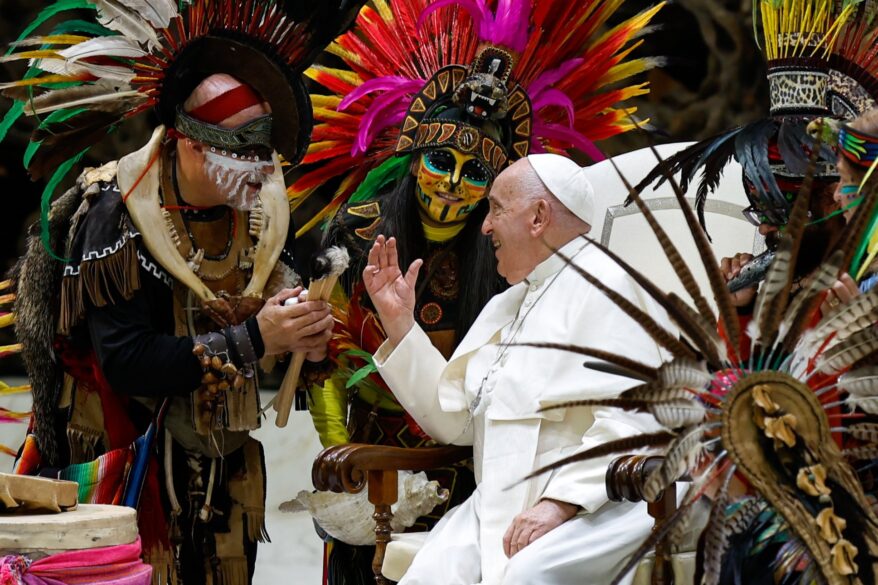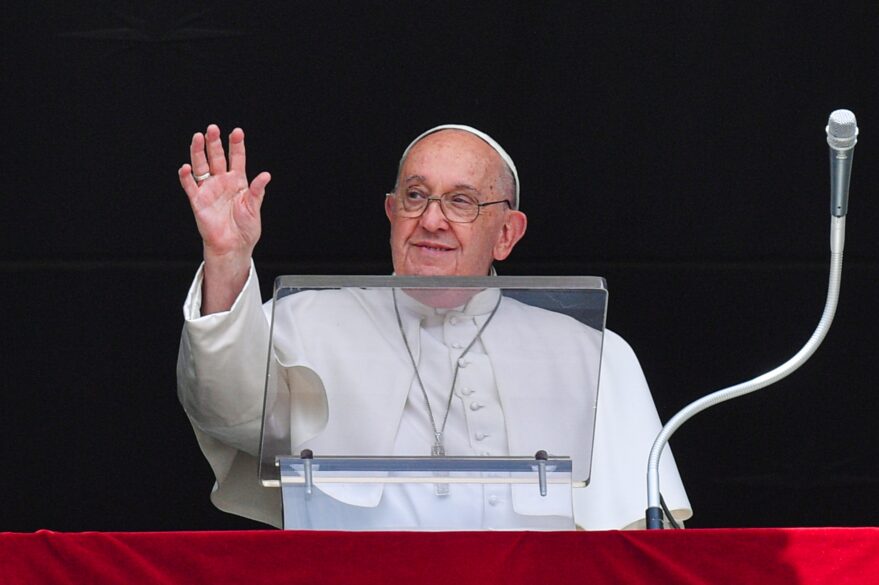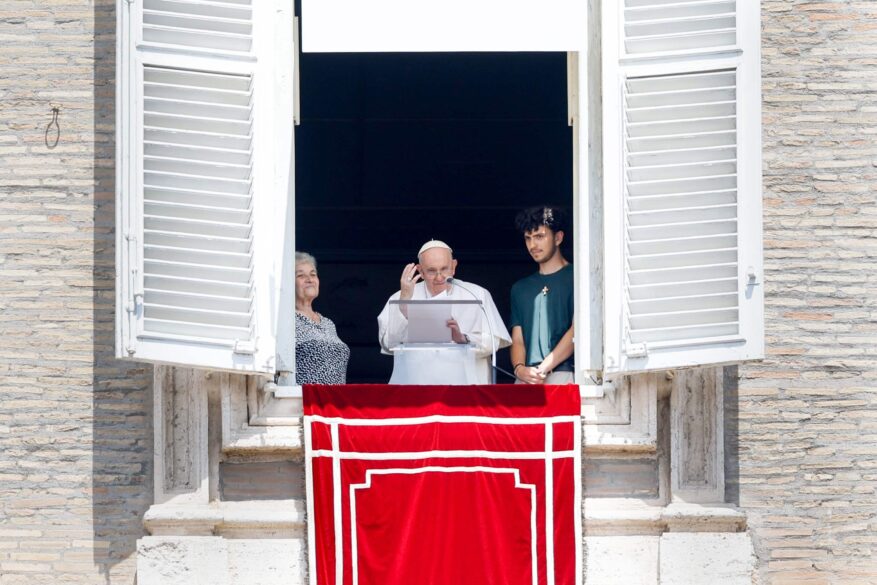By Justin McLellan
VATICAN CITY (CNS) – Every Christian, whether a layperson or member of the clergy, has a vital role to play in advancing the mission of the church through collaboration, Pope Francis said.
“We priests are not the bosses of the laity, but their pastors,” he said in a video message for his October prayer intention: “For a shared mission.”
Christians are called to follow Jesus not with “some people above others or some to one side and the rest to another side, but by complementing each other,” the pope said in the message released by the Pope’s Worldwide Prayer Network Sept. 30. “We are community. That is why we must walk together on the path of synodality.”
The network posts a short video of the pope offering his specific prayer intention each month, and members of the network pray for that intention each day.
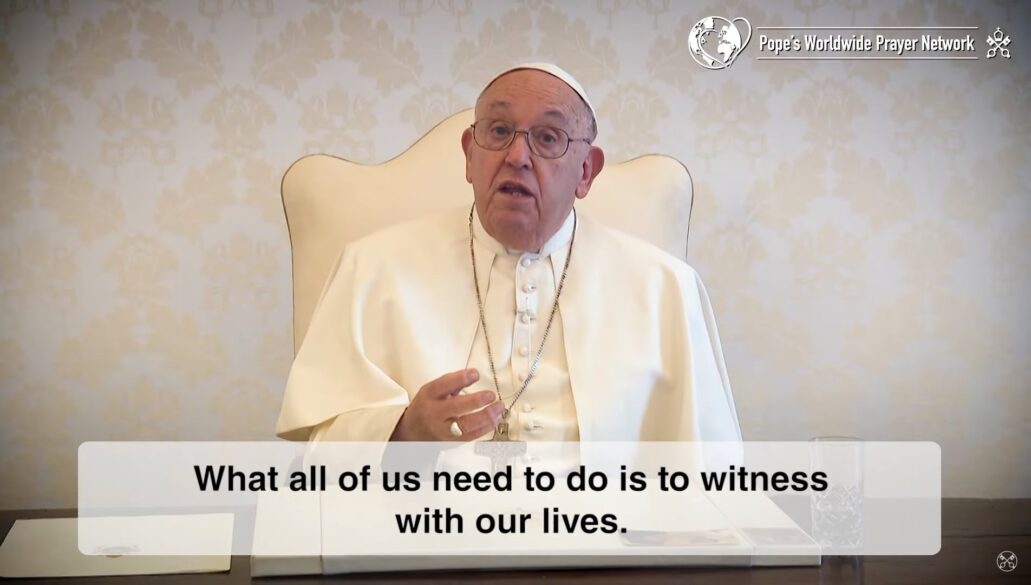
In addition to coinciding with the month that includes World Mission Sunday, the pope’s message was delivered as 368 members of the Synod of Bishops began a two-day retreat ahead of the second session of the synod in Rome. The synod, focusing on synodality, gathers bishops and other experts from around the world to discuss how to create a more listening church.
Pope Francis suggested that a bus driver, a farmer or a fisher might wonder what role he or she can play in the church’s mission of evangelization. But “what all of us need to do is to give witness with our lives. Be co-responsible in mission,” he urged.
“The laity, the baptized in the church, are in their own home, and they must take care of it. So do we priests and consecrated people,” the pope said. “Everyone contributes what they know how to do best.”
“We are co-responsible in mission, we participate and we live in the communion of the church,” he said, asking for prayers so that the church may “continue to sustain a synodal lifestyle in every way, as a sign of co-responsibility, promoting the participation, communion and mission shared by priests, religious and laity.”

